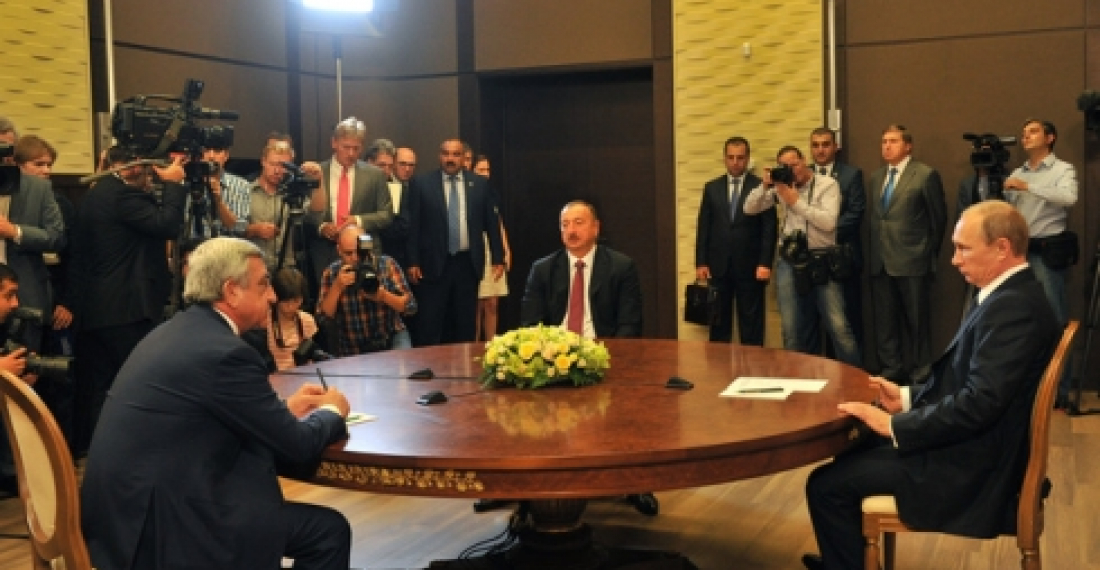10 August:
The Presidents of Armenia and Azerbaijan met on Sunday under the auspices of the President of Russia, but did not enter into negotiations on the Karabakh conflict. Patience, wisdom and respect for each other are required to settle the Nagorno-Karabakh territorial dispute between Armenia and Azerbaijan, Russian President Vladimir Putin said after the meeting.
Putin praised the intention by both the Armenian and Azerbaijani presidents to settle the problem peacefully, "This is actually the main thing because there can be no greater tragedy than the death of people," the Russian president said, adding that the long-standing Karabakh territorial dispute was a legacy of the Soviet Union.
"No doubt, any complex situations can be resolved, if there is good will. Such good will exists both on the part of the Azerbaijani people and the Armenian people," the Russian president said.
The Armenian president said he hoped the Nagorno-Karabakh territorial dispute would be settled by peaceful means soon. "We believe that the conflict should be settled on a compromise basis, using the principles proposed to us by the Minsk Group co-chairmen," Sargsyan said. The Armenian president said that the Karabakh conflict had "no military solution."
In turn, the Azerbaijani president said that the Nagorno-Karabakh conflict should be settled on a compromise basis laid by the OSCE Minsk group. "We hope that soon, by means of negotiations, by peaceful means, we shall find a solution to comply with international law and with justice," Aliyev said.
(commonspace.eu with Itar-Tass)
Photo: The Presidents of Armenia Azerbaijan and Russia at their meeting in Sochi on 10 August 2014.







